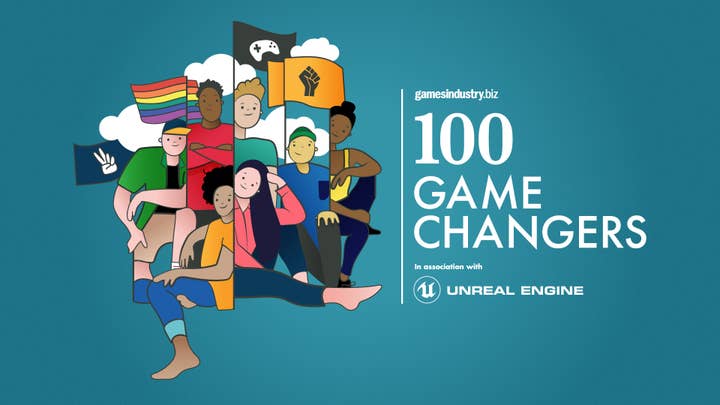GI 100 | Game Changers -- Part Five
Game Changers continues with pioneering esports in Zambia, advocating for nonbinary people, and community building in Colombia, Romania and India
As 2020 draws to a close, many will reflect on 12 months defined by stress, upheaval, and the urgent need to confront some difficult truths about the way the games industry operates, and the myriad ways it can be a better and more inclusive place.
But just as that process of self-examination is necessary, so too is recognition for those already working to solve those problems. In this GI 100 series we will profile 100 individuals and organisations making progress in vital areas like diversity, accessibility, charity, mental health, progressive politics, lifting emerging markets, uniting communities, and more -- people whose stories can show us how this industry can be that better and more inclusive place.
Below is the fifth group of ten Game Changers, with ten more to follow every working day until December 18. The project is sponsored by Unreal Engine and you can read more about it here.
Sandra Castro Pinzón, Tan Grande y Jugando
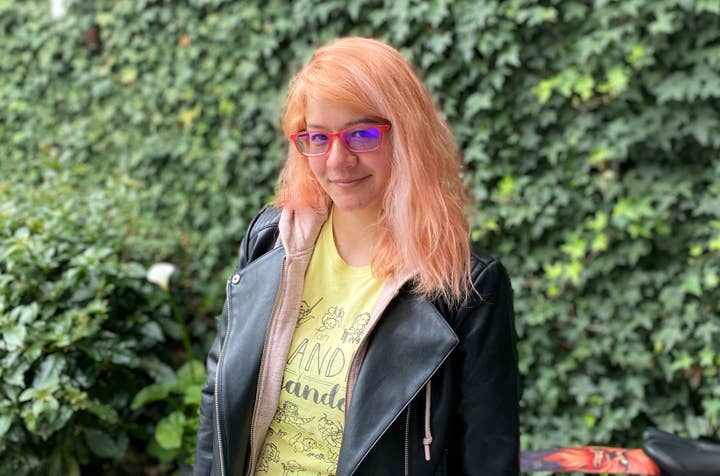
The progress of any given country's games industry is influenced by a variety of factors, many of which have little to do with the quality and frequency of game launches. Support from the government and collaboration between different organisations is often required for a national industry to evolve -- this is what Sandra Castro Pinzón is trying to achieve in Colombia.
"The biggest issue I have found is that the games industry in Colombia is not properly recognized to the fullest of its capacity," she says. "Video games can be a conduit to create the next generation of educational platforms for the 21st century. By utilising them, it is possible to draw more people into STEM careers, but in my country only a few important organizations recognize games as suitable tools for achieving these goals."
The Tan Grande Y Jugando community platform was established to address problems such as this, and Castro Pinzón is its executive director. Her background in journalism, academia and working with political organisations leaves her well equipped to identify where change needs to be made, and the best strategies to make it happen.
"The games industry in Colombia is not properly recognized to the fullest of its capacity"
Sandra Castro Pinzón
"We constantly create spaces within universities and academies so they can get more information about the games industry and work to break the talent gap," she says. "I am also frequently asked by government institutions to work as a consultant for their initiatives to promote the games industry, and to share how this can be implemented by speaking at panels and interviews about the state of the industry and areas of opportunity."
Castro Pinzón is also deeply involved with improving diversity. In addition to supporting initiatives across the LATAM region, she is the Colombian ambassador for Women in Games, and a director of the Women Game Jam, an event that takes place across 13 Latin American countries. She also created a new organisation, Colombian Women in Games, to address the specific needs of her country.
"According to research that I conducted myself, the LATAM games industry is made up of less than 10% women, and the best way to break this is for everyone to work together towards the same goal," she says. "This is why I strive to work with all people no matter their gender, race, religion."
In all of these endeavours, Castro Pinzón has not acted alone. She emphasises the work of the Women Game Jam's other directors, the 100 people who have already come together under Colombian Women In Games, and the support of her family. But there is still work to be done, and Castro Pinzón believes there are many ways to show support, from Patreon donations to simply paying attention to Tan Grande Y Jugando's communications channels.
"Each Follow, Share and Like makes a difference and allows more people to connect with the video game industry," she says. "And of course, finding Colombian and Latin American games that are breaking schemes and are bursting with talent -- supporting these games and developers is the best way to support this incredible industry."
Interface3
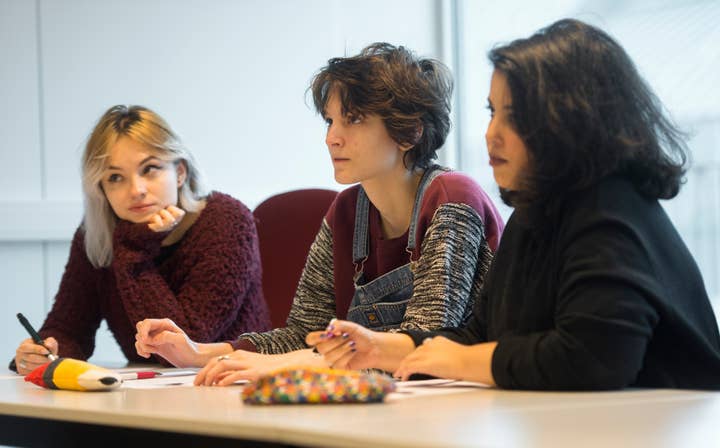
In 1987, as computers were becoming established as a staple of both workplaces and households, the Belgian educational institute Interface3 was formed. The goal was to train women for professions where they were underrepresented, such as IT and other technical fields, despite the many career opportunities available. In 2015, its remit was extended to game development.
"The idea was to attract young women into the world of development through their passion for video games," says director Laure Lemaire.
Aside from the growth of the industry and the sheer range of positions available, Interface3 decided to train women for roles in games in the hope of helping to bring down the many obstacles they face there.
"First of all, there are gender stereotypes -- among many other stereotypes -- typical in the IT sector," Lemaire explains. "In the case of the video games sector, you also have to deal with the 'boys club' syndrome, a bit like the pre-teens and their 'no girls' treehouse. This particular aspect often discourages girls from getting into the business, but things are changing and girls also like their treehouses, you know."
"As long as there is an attitude of complacent tolerance towards sexist jokes and verbal assault, women won't feel comfortable"
Laure Lemaire, Interface3
Lemaire adds that the industry needs to fully adopt a zero-tolerance attitude towards gender harassment, or indeed any other form of harassment.
"As long as there is an attitude of complacent tolerance towards sexist jokes and verbal assault in the community, women won't feel comfortable, or they'll have to dedicate a great deal of energy to fight these attitudes," she says. "Even pretending that nothing happened requires a lot of energy.
"Zero tolerance is not always easy, [but] every creative process needs a framework and digital creation is no exception. If the framework consists of being inclusive in the whole process, what negative side effects can there be?"
Interface3 has been careful in communicating the nature of the course, and the industry it leads to. Lemaire says the institute takes an approach that "must be geeky, but not too much."
"Even if nowadays more girls play video games, gender stereotypes form an obstacle which prevents them from evolving from the 'I play' stage to 'I develop a game.' At first, looking at the training program they just think, 'Yeah, that sounds interesting, let's go for it' -- but they often don't realise that they are embarking on a very technical training. The training allows them to grasp the geek inside them, and it works. You should see the projects they carry out at the end of the training."
Interface3 is already supported by the European Social Fund and Digital Belgium Skills Fund, but it's keen to have more industry involvement -- and not just in terms of finance.
"For a start, please hire our students once their training is completed," says Lemaire. "Besides that, we are open to any type of collaboration with games companies -- for example, workshops given by experts on one of our modules."
Andreea Medvedovici Per, Romanian Game Developers Association
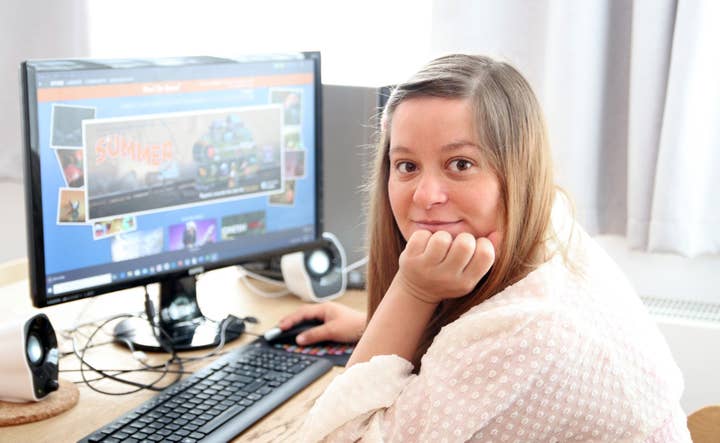
Andreea Medvedovici Per is the executive director of the Romanian Game Developers Association, vice president of the European Game Developers Federation, and co-founder of Women in Games Romania. Oh, and she also does biz dev for Door Kickers studio KillHouse Games.
She's only been in the games industry for five years, but has clearly put her professional history in association management to use in her time here.
"I am a great believer in the power of together in general and the power of industry associations in particular, and I believed that creating a powerful association in the industry will do wonders," she says.
As for the KillHouse position, she took that job to better understand the inner workings, struggles and successes of an indie developer and better inform her work with the RGDA and EGDF.
"The knowledge I gained and am still gaining here is invaluable," she says, "It also showed me how wonderful this industry is for women, but also how much a woman's perspective is needed in this industry. That is why I joined my colleague Cristina Neamtu in co-founding the Women in Games Romania Association last year, because I believe that only with a coordinated and collective action we can actually change something!"
"I believe in the extraordinary force of games as the cultural medium of our times. We need representation for that"
Andreea Per
As might be expected of someone with Per's workload, there are people at every organization supporting her to make her work possible.
Per credits RGDA president and Dev.Play Conference founder Catalin Butnariu with having the guts to hire her despite her lack of gaming-specific experience, and the patience to let her get up to speed. She's also grateful to the entire Romanian development community for their trust and support, as well as her colleagues at the EGDF, president Hendrik Lesser and COO Jari Peka Kaleva, for making the federation possible and driving its vision.
Rounding out the list, she mentions the tireless work of her Women in Games Romania co-founder Neamtu and the efforts of KillHouse developers Mihai Gosa and Dan Dimitrescu to support her and make her welcome in what had been an all-male studio.
Given her roles in the industry, Per says the best ways the industry can help her are the ways it can help itself.
"Sharing best practices is critical in my opinion," she says. "I am thus participating in any event that can teach me how to support the industry better, how to make the industry better, and how to develop games for better (for good). I believe in the extraordinary force of games as the cultural medium of our times! We need representation for that. It's crucial. It's a must.
"Participate in events, learn how to do things better and fairer (if that is a word!), organize events, share what works, invest money in educating the future generation of devs, answer our calls as community organizers, support our activities, and make the industry a better place!"
Fawzi Mesmar
Fawzi Mesmar has an impressive resume as a developer. The head of design at EA DICE has worked in gaming for more than 17 years now, with stints at King, Gameloft, Atlus, and more that saw him as part of the development community in Jordan, Saudi Arabia, New Zealand, Japan, Germany, and now Sweden. Along the way he's worked as a designer or director on 20 games from a cross-section of popular genres, even being named a Game Dev Hero along the way.
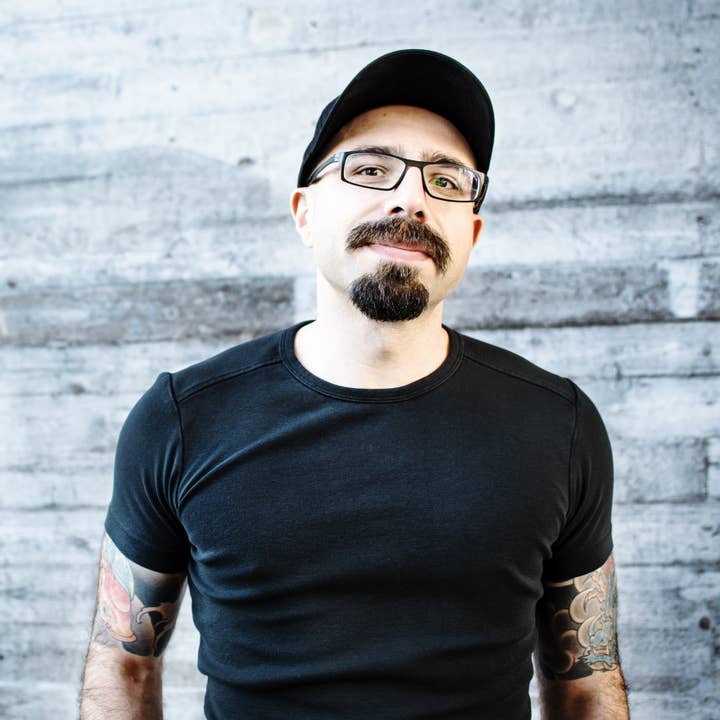
Mesmar is part of the GI 100 not for his successful career, but for his continued efforts to share the knowledge and experience he's gained over that career. He wrote "Al-Khallab on the Art of Game Design," which is believed to be the first textbook on game design written in Arabic. He shares his experience in talks at conventions and game dev schools around the world. He co-founded the Berlin chapter of the IGDA.
The instinct to share knowledge and help others seems to have been present from long before he entered the industry professionally; he recalls writing strategy guides in school notebooks to help the other kids in class finish games.
Of course, people who help others often receive help themselves, and Mesmar credits the support and encouragement of his family and friends with helping him do what he does, as well as his various employers.
"My managers at different companies that I worked and still work in support me," Mesmar says. "They allow me to dedicate my free time to game design and development education, they support me speaking and attending conferences, and they often encourage me in helping out and mentoring underrepresented peeps around the world. My wonderful colleagues and peers in the industry, they taught me a lot, took a chance on me, supported me even with words of encouragement, inspired me by doing amazing things. I feel very fortunate to know them, they are too many to count."
Mesmar says everything good in his career happened because someone took a chance on him, so he urges others to take chances on people as well.
"How can you help someone realize their dreams today?" he asks. "How can you spend a little bit of your time extending an arm to others? How can you inspire someone to switch their mindset from saying 'That's impossible' to 'I can do it, too!'? How can you give a bit of your time to help others make their games better?"
POC In Play
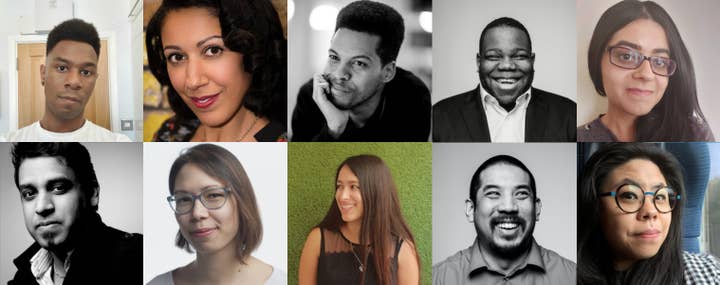
Some organisations only long for one thing: the need to not exist anymore. POC in Play is one of them.
"The day POC in Play is no longer needed will be the day our work is done," says Adam Campbell, director of product at Azoomee, and one of the co-founders of the organisation, alongside Chella Ramanan, narrative designer at Massive Entertainment. "Until then, we're looking to build small initiatives into things that can grow in the weeks, months and years to come.
"Everything we do is designed to tackle the intersectional challenges that pertain to representation, inclusion and access for racial minorities. There's no one-size-fits-all approach to help communities in the UK, or internationally, so we need to work with solutions that can bring together our common struggles, along with those which are more targeted."
"The day POC in Play is no longer needed will be the day our work is done"
Adam Campbell, POC in Play
POC in Play was unveiled in February 2019, with a goal to address the representation and inclusion issues faced by racial minorities in the video games industry. It is Europe's biggest organisation for racial inclusion in video games.
"Pre-pandemic, we hosted monthly face-to-face meet-ups, which quickly became one of the biggest and most consistently attended games industry meet-ups in the UK," Campbell continues. "Hosted at Ustwo Games in London, we saw a diverse attendance of all levels to speak about work and play, and we also hosted a number of exclusive talks. As part of a widening participation drive, we also provided a monthly travel and accommodation bursary to enable people from outside London to access the event. Not wishing to stop there, we established POC in Play North the same year to offer events in the north of England.
"We have also seen huge success through online visibility initiatives on social media, such as the BAFTA x POC in Play Takeover for Black History Month, BHM Games 100 list, and the international #IamPOCinPlay hashtag, all with incredible engagement. Going forward, we have more visibility campaigns, events and educational opportunities we're excited to launch."
You can support POC in Play's work by following and boosting its social media activity (@pocinplay). For those who would like to offer sponsorship or specific services in support, the organisation can be reached at contact@pocplay.org.
Yadu Rajiv and Kinshuk Sunil, GameDev.in and BYOG Game Jam
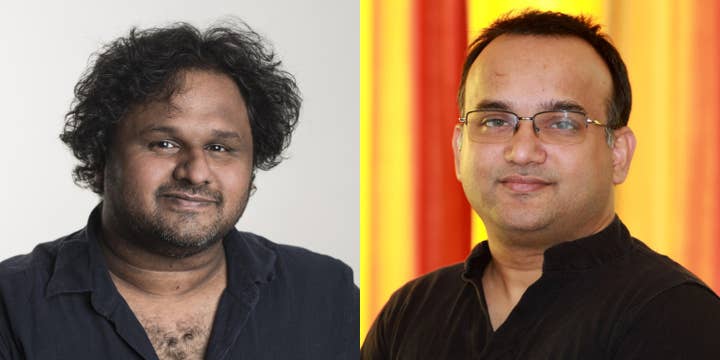
India has been a point of great interest for the games industry for many years, but principally as a huge new market of potential players. The country's development community, on the other hand, has received far less attention from international publishers.
In that kind of emerging development scene, community builders like Yadu Rajiv and Kinshuk Sunil play a vital role. They have been making games together since the mid-2000s, but despite India's vast population, in those days it was all but impossible to find collaborators.
"We would aggregate on platforms like SourceForge and build international teams, but not find many folks from India. It was strange that we couldn't find people who were interested in making games like us; hoping to solve this problem, we set out to build a space that could bring all those interested in making games together."
What started as a mailing list in 2008 grew to a community of 150 developers within a few months. The following year, the pair started organising in-person meetups -- Sunil in Delhi, and Rajiv in Bangalore.
"We set out to build a space that could bring all those interested in making games together"
Yadu Rajiv and Kinshuk Sunil
In addition to starting a company together, Hashstash, Rajiv and Sunil have started a range of projects that helped to galvanise India's professional games culture. Indie GameDev India (now GameDev.in) is regarded as the country's longest running developer community, creating opportunities and visibility for its members, as well as serving as a hub for knowledge sharing. Similarly, the Build Your Own Game (BYOG) Game Jam has been running since 2010, with the most recent edition attracting 87 submissions from 300 different developers.
They are also both deeply involved in organising the India Game Developer Conference -- formerly the Nasscom Gaming Forum. Among their contributions are a comprehensive directory of the Indian games industry, the creation of the country's first ever developer awards, and a game jam contest aimed at school children.
"Anando Banerjee, Hrishi Oberoi, Rajesh Rao, Shailesh Prabhu and Shruti Verma have been our industry mentors and collaborators," they say of the people who have helped them along the way. "Joel Johnson, Rishikanth Somayaji, and Tejas Shirodkar have been our fellow conspirators over the years, contributing in some form to pretty much everything that we ever worked on.
"The best way to support us in our future initiatives is for everyone to be more open and supportive about sharing knowledge and best practices, participate in community initiatives like local meetups and game jams, and keep doing the good work that they are doing."
Cholwe Shabukali, Team Gematrix
When Team Gematrix was founded, the esports scene in Zambia was virtually non-existent. Improvements to internet infrastructure had caused the popularity of esports to grow in South Africa and elsewhere, but the wave had not spread to all parts of the continent -- Cholwe Shabukali sought to change that.
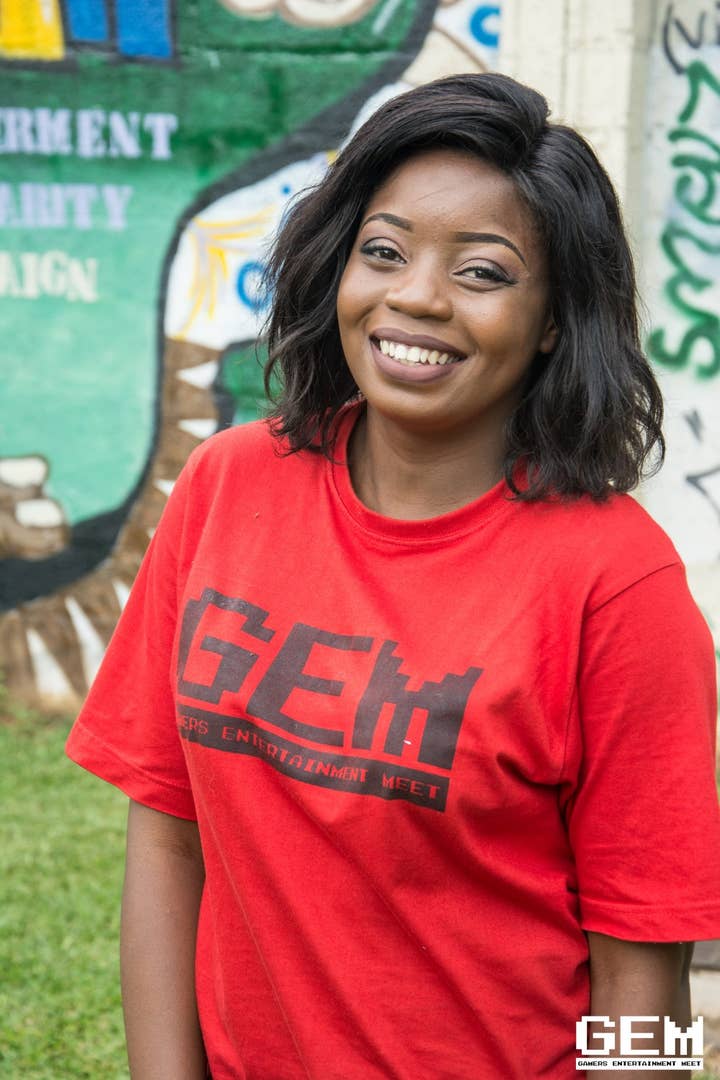
"Team Gematrix started in 2018," she recalls. "Prior to our establishment, the Zambian esports industry was dormant -- no events or tournaments were happening. As a way to test the market and scout players for our organization we hosted the Stone Gaming Tournament in November of 2017 -- it was the first tournament [in Zambia] for a while.
"The esports scene seemed to have a kickstart in March of 2018, after we won our first esports championship in Nairobi, Kenya. We saw our community unite in support, and a huge shift in the number of events hosted, teams and other esports organizations emerged."
With Team Gematrix as a catalyst and increasing access to the internet for Zambian people in general, the country's esports scene is starting to grow. However, Team Gematrix faces significant issues in competing with teams from wealthier countries with more mature industries.
"Being a pioneer of an esports industry in a third world country has been a challenge, especially that there has been no road map to follow and certainly no role model to look up to," Shabukali continues. "We were heavily handicapped by the little resources we had when running the business.
"The biggest challenge has been trying to make Gematrix into a sustainable business, despite us having no seed capital or any form of funding. We have had to bootstrap our way into every little success story we have built."
"Being a pioneer of an esports industry in a third world country has been a challenge... there has been no road map to follow"
Cholwe Shabukali
Some of the business acumen behind Team Gematrix was learned in the Zambian startup incubator Bongohive, but otherwise Shabukali has crafted her own approach by studying entrepreneurs like Patrick Bet-David and Gary Vaynerchuk. And in addition to becoming sustainable in the business sense, there is a drive towards making diversity a core principle of Zambian esports even at this early stage.
When asked about her vision for Team Gematrix, Shabukali says it's "To create a platform for players, male and female, to grow and nurture their competitive skills. We [want to] provide opportunities for players to compete around the globe, and a chance for content creators to express their freedom.
"As a female gamer, one of my goals is to make Gematrix a place where gamers like myself feel a sense of belonging -- we signed our first female streamer this year."
Dominic Shaw, UKIE
Diversity in the games industry can only progress if companies actually commit to building a better workplace culture. To that effect, UKIE launched its Raise The Game pledge this year, inviting studios to publicly commit to making a meaningful change. It was synchronised by the UK trade body's EDI (equality, diversity, inclusion) coordinator, Dominic Shaw.
"From guidance and practical advice to engagement activities like events, both online and in-person, the pledge is a call to action to rally the sector together and become lead examples of inclusion to other industries," Shaw says.
The Raise The Game pledge led to a range of activities helping the overall UK games industry to grow and improve in all areas of diversity and inclusivity -- such as webinars, roundtables and a newsletter.
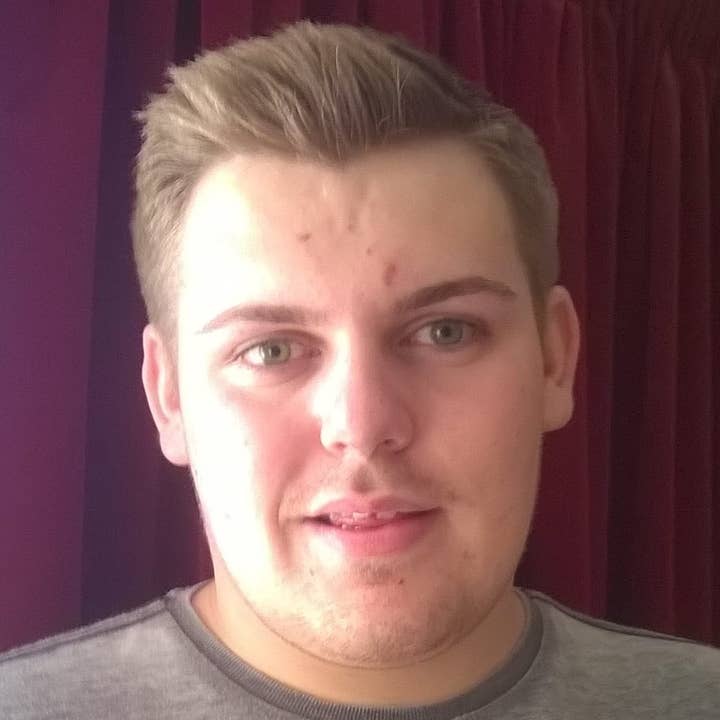
"[The newsletter] allows pledge companies to show their commitment by sharing what they are doing around EDI, along with the wider games industry to gain better insight to the pledge and have another EDI resource to have access to," Shaw explains. "Overall we support those involved in the pledge through ongoing communications, engagement and best practice advice to support them to be as all-encompassing and welcoming an organisation as they can be!"
In addition to his work coordinating the Raise The Game pledge alongside UKIE's senior operations manager Sophie Mangara and head of communications George Osborn, Shaw helps run its Video Games Ambassadors programme with Into Games' partnerships lead Brandon Cole.
Since May 2019, he has also worked with the autism research charity Autistica Play as an ambassador, raising funds and awareness for the organisation. You can learn more about how to support autistic individuals and partner up with Autistica Play here.
"Always try and put the effort into positive causes," Shaw says. "EDI isn't about being perfect and meeting tick boxes, it's about being open, transparent and always doing your best to be as inclusive and welcoming as possible to those who work in video games, and those outside the industry bubble like players and new talent.
"Individually, proactively make an impact in your own work environment -- even the smallest change may be showing allyship to a colleague from an underrepresented minority."
Maize Wallin, Nonbinary Zone
Maize Wallin is a Melbourne-based composer, sound designer, and audio programmer. Though they started in composition, they quickly found a passion in technical audio, and specialize in 3D spatialized audio and dynamic music, having worked on titles such as Godfall, Receiver 2, Wayward Strand, and Cosmic Express.
Alongside their audio work, Wallin is the co-founder of Nonbinary Zone, an advocacy group and community of nonbinary individuals.
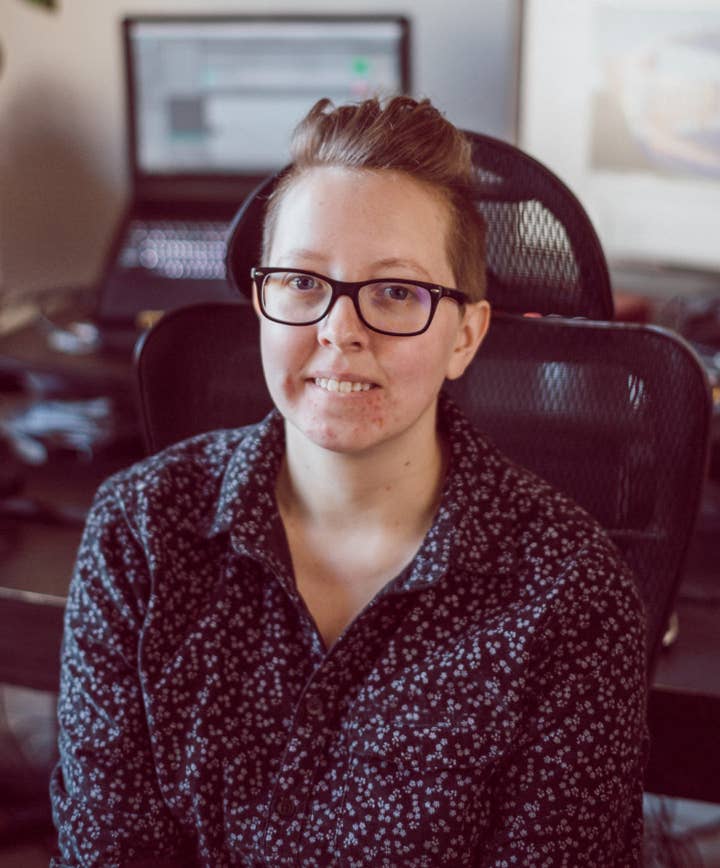
"Nonbinary Zone has worked with local government here in Victoria on making more inclusive events," Wallin says. "But mostly we are a huge international online network on Discord, and as a community we've helped to guide non-binary representation in a lot of areas, as well as internally our community supports a massive amount of self-discovery and exploration."
Wallin is also an active organizer for Game Workers Unite Australia, where they are a representative for Melbourne and spread awareness about contracts, rates, and what working conditions to expect. They also work with advocacy colleagues across Southeast Asia, and are on the board of directors for Making Space, an initiative to support marginalized genders.
Though Wallin says Making Space is still in its early stages, it's already produced talks on inclusion and intersections of race, colonization, gender, and class for festivals like Freeplay.
"I love community so much, because it is about holding space for one another," Wallin says. "We're all learning and evolving. We need space to express joy, anger, frustration. That's why it's important for communities to be inclusive.
"There is a key difference between community and industry, and that is that in communities we are supported to be angry and personal. We can be confronting and talk about hard issues. Issues that are hard to talk about, and easy to make mistakes within. And we can do that without risk of losing a job, being told to shut up, or any other capitalistic punitive actions. We hold space for one another, because we actually care for one another and are invested in all our mutual growth. Industry is not like this. Capitalism can't support it.
"I think it's really important to be open to change and embrace tension and being uncomfortable"
Maize Wallin
"Another part of community is that we don't care how long you've been working in games. The games industry churns through juniors, and marginalised juniors are routinely exploited and harassed -- they're easy to take advantage of because they are new and marginalised, and don't have the job security or wide enough network to feel confident saying no to people. Communities need to step in here, and help allow people to say no to predatory bosses or work environments, and [know] that they will still have a network to move somewhere better.
"I think it's really important to be open to change and embrace tension and being uncomfortable. There are new words and interpretations of 'nonbinary' that didn't exist just a few years ago, that includes younger people coming to it, but also how we interrogate its whiteness. As communities, we can support each other through new ideas -- or even old ideas where we're still catching up."
Wallin is grateful to the support they've received from communities across social media platforms, Game Workers Unite Australia, and community leaders in Southeast Asia. They say the industry can further support their work with money and time, saying their dream is for their industry work to be able to subsidize their advocacy work.
"What if I could put in my contract that 10% of my time is spent on advocacy? I think some employee arrangements have things like this already, but more studios need to embrace this kind of practice."
Phoebe Watson, DragonBear Studios

Phoebe Watson, along with the rest of DragonBear Studios, is currently working on a co-op adventure game called Innchanted. The team is based in Melbourne, and proudly announces itself as a studio of diverse, queer, and Indigenous storytellers explicitly making a game set in an Indigenous Australian-inspired fantasy world.
Watson joined the team in 2019, during the second year of her studies toward a bachelor's in game design at RMIT. She now works with DragonBear to include Indigenous culture in the game in a way that's both fun and culturally respectful.
"I was so excited to join the team and I thought it would be fantastic to help intertwine my own culture into such a cool game," Watson says.
Additionally, she has spoken publicly at various industry events, including PAX, Freeplay19, and GCAP19 about the benefits of including Aboriginal culture in video games, and the importance of sensitive representation.
Watson says her biggest supporter has been DragonBear creative director Paulina Samy, who has encouraged her to speak about what she does in the games industry to work toward better Indigenous representation. She adds that she has loved every talk she has done, and appreciates the support and interest from the industry at large.
"The best way for the industry to support me is to support Indigenous peoples in the industry and the projects that are run by or support Aboriginal people," Watson says. "Acknowledge the local tribes and communities, and support Indigenous employees by including them in your processes."
